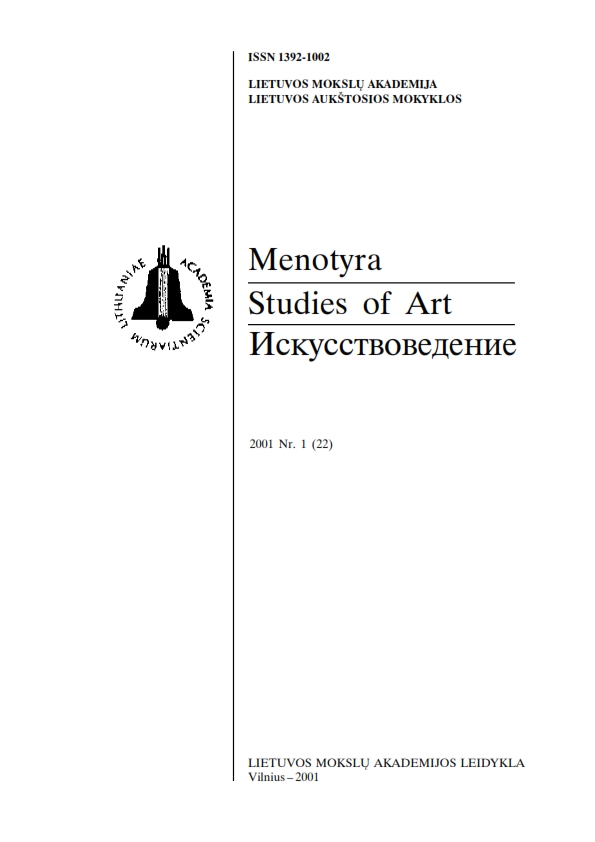Vilniaus dramos teatro atkūrimo tikroji istorija ir Romualdo Juknevičiaus tremties byla teatro istorijos puslapiuose
The true story of how Vilnius drama theatre was founded and the case of R. Juknevičius’ exile
Author(s): Irena AleksaitėSubject(s): Theatre, Dance, Performing Arts
Published by: Lietuvos mokslų akademijos leidykla
Summary/Abstract: This article tackles the issue of historical truth and its relation to the period in question or, in another way, the problems concerning interpretation of the historical facts. In Soviet years, under the pressure of censorship, theatre historians were forced to hush up or circumvent things. This is how they falsified the story about the foundation of the Vilnius Drama Theatre. As we know, Soviet authorities used to arrogate all the merits to themselves claiming that they are founders of everything and that they are in charge of turning the new pages in history. Yet the true date of foundation of the Vilnius Drama Theatre is not October 6, 1940, but 1939 as it was announced in a decree issued by the independent government of Lithuania. The article gives a more detailed account on these facts.Similar historical falsification is the so-called 'case of exile' with the celebrated theatre director Romualdas Juknevičius in principal role. The History of Lithuanian Theatre, published in 1987, tends to leave out or evade this fact. It contains a published text (written by M. Petuchauskas), which gives no evidence but one weird thing: in 1946, according to the article, R. Juknevičius leaves Vilnius Drama Theatre for an appointment in the Samogitian Amateur Theatre in Telšiai. It does not even bother to explain the reasons for so important a step. In the actual fact, it was Soviet KGB that exiled R. Juknevičius from Vilnius to Telšiai as a penalty for his careless talks during the years of German occupation on how Lithuania was incorporated in the Soviet Union. These facts, however, are absent in the aforementioned source, let alone their misleading interpretation. On the other hand, if some theatre historian had used more "sinuous" formulation, saying, for example, that R. Juknevičius was forced to resign from the Vilnius Drama, the reader would be instigated to think and consider this question. Hence a theatre historian, dealing with his or her object of research and facts about it, should be exceptionally precise in description because his task calls for a considerable understanding and even diplomacy, especially if one is to work under unfavourable historical and political conditions.
Journal: Menotyra
- Issue Year: 2001
- Issue No: 1(22)
- Page Range: 4-7
- Page Count: 4
- Language: Lithuanian

